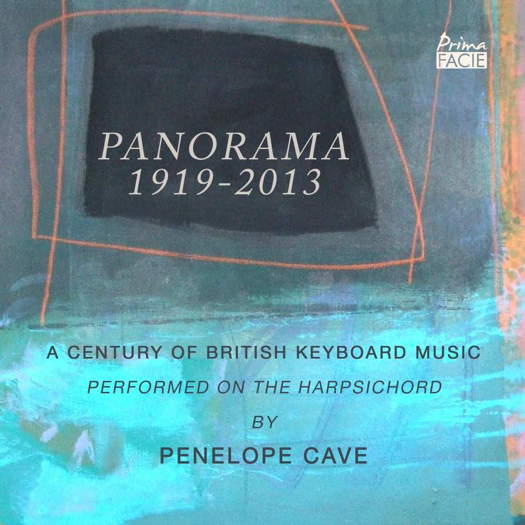 ASK ALICE: Weekly, from 2003 until 2016/17, Alice McVeigh took on the role of classical music's agony aunt to answer questions on a surprising variety of subjects.
ASK ALICE: Weekly, from 2003 until 2016/17, Alice McVeigh took on the role of classical music's agony aunt to answer questions on a surprising variety of subjects.
 SPONSORED: CD Spotlight. A Fantastic Collection. Penelope Cave Panorama CD. Little-known harpsichord gems, strongly recommended by Alice McVeigh.
SPONSORED: CD Spotlight. A Fantastic Collection. Penelope Cave Panorama CD. Little-known harpsichord gems, strongly recommended by Alice McVeigh.
All sponsored features >>
- Uri Caine
- Berberian
- Sir Peter M D
- Dino Yannopoulos
- Intermusica
- Maddy Aldis-Evans
- Grindelwald
- Michel Merlet: Le roque de sol-ut-ré
Particularly Irresistible
Music by Smetana, Martinů and Dvořák
from Laura van der Heijden, Pietari Inkinen
and the Prague Symphony Orchestra
impresses MIKE WHEELER
What is it about Czech dance rhythms that makes them so particularly irresistible? The Prague Symphony Orchestra and conductor Pietari Inkinen - Royal Concert Hall, Nottingham, UK, 13 November, 2019 - opened with the overture and three dances from Smetana's The Bartered Bride, which were buzzing round my head for days afterwards. The overture was fresh and bubbly, with incisive playing in the fugal opening. An earthy account of the Polka was a positive invitation to get up and dance, and the distinctive rhythmic character of the Furiant had a real kick. A taut, crisp Dance of the Comedians was a overspill of sheer exuberance.

Pietari Inkinen. Photo © Nguye Phuong
Just a few days after Opera North's staging of Martinů's The Greek Passion, at the Theatre Royal next door, along came his Cello Concerto No 1, with Laura van der Heijden setting her stamp on the solo part with an authoritative first entry. She went on to bring out the folky character of her second theme, and duet engagingly, later, with Luboš Hucek, bassoon, and then Liběna Séquardtová, oboe.

Laura van der Heijden. Photo © Chris Gloag
Hucek was joined by Jan Czech, clarinet, in a deliciously smoky-toned account of the second movement's opening, with Laura van der Heijden adding another layer of emotional complexity. The rich sonorities of her multiple stopping in the central cadenza carried over into her duet with principal viola Pavel Peřina. Her plangent, lamenting tone was echoed in the poignant, still episode in the midst of the finale's bustling energy - those dance rhythms again - delivered with panache. Judging by various comments afterwards, Martinů seems to have made several new friends among the Royal Concert Hall audience.
Dvořák's Symphony No 9, 'From the New World', may be a well-worn favourite, but with this deeply committed performance it was like hearing it for the first time. The orchestra's sound, both warm and incisive, informed a powerful, vigorous account of the first movement. There was a real catch-in-the-throat quality to the cor anglais solo (the player was not separately credited), while the little woodwind dance near end sounded more like an echo of Mahler than I've heard before. The muted strings at the end sounded a hard-to-define but palpable emotional depth. There was more of the evening's dancing energy in the Scherzo, with the woodwind bringing a delectably rustic sound to the contrasting episodes. In the finale, the urgency of Inkinen's reading avoided any suggestion of the episodic, but there was still space to relish details, such as Hucek's bassoon solo in the slower central passage.
The encore, Dvořák's Slavonic Dance Op 46 No 8, was another furiant to match Smetana's.
Copyright © 24 November 2019
Mike Wheeler,
Derby UK



